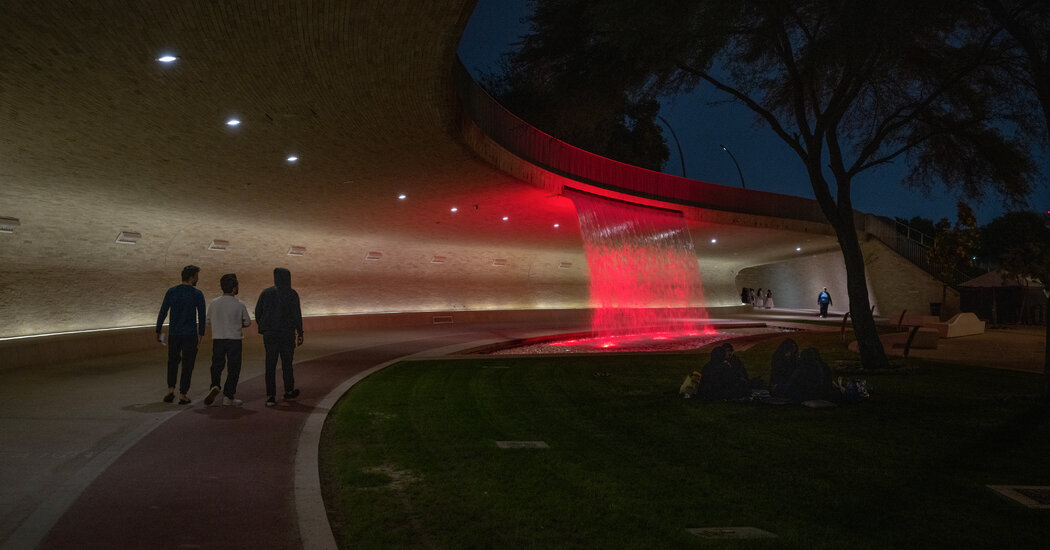Nilab’s Journey: A Struggle for Education and Rights
When Nilab finds it challenging to concentrate, she resorts to an unusual yet effective technique: she writes down her anxieties on small slips of paper and pins them to her dorm room wall. This coping mechanism, which she learned during a mental health seminar at the American University of Afghanistan in Kabul, allows her to externalize her worries. She commits to addressing these issues at a designated time, enabling her to refocus on her studies. This strategy has been her anchor during tumultuous times, particularly after the U.S.-backed Afghan government was overthrown in 2021. In the wake of the Taliban’s takeover, which made it illegal for women to pursue education, Nilab fled in July 2023 to continue her studies at the university’s campus-in-exile in Qatar.
Now, in her modest dorm room in Doha, the collection of notes has begun to accumulate, each slip representing a fear that weighs heavily on her mind. The Trump administration’s suspension of foreign aid and refugee admissions has intensified her anxiety, leaving her terrified of the prospect of being forced to return to Afghanistan. There, she knows she would face dire consequences, stripped of her rights as a woman and deprived of the opportunities she fought so hard to attain. Her American-style education, which she has worked tirelessly to achieve, would be rendered nearly worthless in her home country.
As she grapples with these fears, her imagination runs wild with the possibilities of what could happen if she were to return. “How can girls go back to Afghanistan?” Nilab, 30, who prefers to keep her full identity private for safety reasons, expresses her deep concern. “What will happen to us? Rape, forced marriage, and death loom over us like a dark cloud.”
On January 20, just as Nilab was immersing herself in her final project for her cybersecurity degree, President Trump signed an executive order that effectively suspended refugee resettlement. This decision shattered her hopes of reuniting with her family, who were granted asylum in the United States after the Taliban took control of Afghanistan. The promise of refugee status for her and her classmates now seems like a distant dream, leaving Nilab in a precarious position as she navigates the uncertainties of her future.




